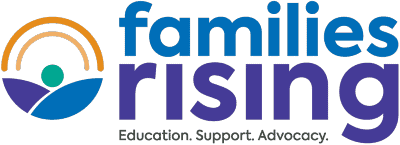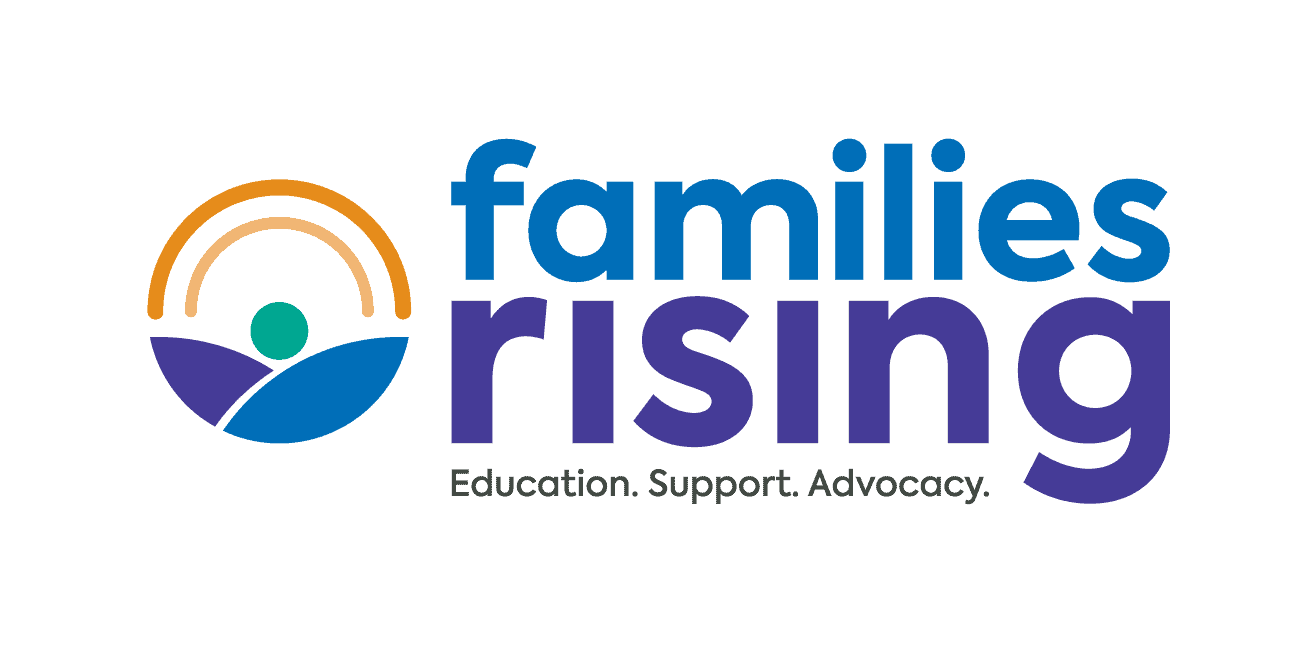From Adoptalk 2018, Issue 2; Adoptalk is a benefit of NACAC membership
By Jon Baylin, PhD, and Dan Hughes, PhD © 2018
Jon Baylin is a clinical psychologist who has been working in the mental health field for 35 years. For the past 20 years, while continuing his clinical practice, he has immersed himself in the study of neuroscience and in teaching mental health practitioners about the brain, giving numerous workshops for mental health professionals on “Putting the Brain in Therapy.” Dan Hughes is a clinical psychologist who founded and developed Dyadic Developmental Psychotherapy (DDP), the treatment of children who have experienced abuse and neglect and demonstrate ongoing problems related to attachment and trauma. Several years ago, Dr. Baylin began a collaborative relationship with Dr. Hughes. Their books, Brain Based Parenting (2012) and The Neurobiology of Attachment-focused Therapy (2016) are both in the Norton series on Interpersonal Neurobiology.
“We began to think that changes in a relationship are often the result of changes in a parent’s capacity to make sense of her child as a separate, differentiated person with thoughts, feelings, and a mind of his own—to think more reflectively about that child.” (Arietta Slade, 2006 p. 640)
From the moment we’re born, our brains adapt and evolve according to our experiences. For children exposed to trauma, neglect, or chronic stress, the brain develops strategies to cope, focusing on self-preservation and identifying the next potential threat. Over time, these strategies become behaviors and can persist even when a child enters a safe and nurturing environment. Therefore, understanding how a child’s mind is altered by trauma can help parents and professionals better direct their support.
Developing Defenses
Children depend on adults for food, shelter, and protection. Abuse and neglect may jeopardize these safeties, so when a child experiences chronic distress, the brain uses its pain-relief function—called the analgesic opioid system—to block out feelings of hurt or pain in favor of remaining near the adult who can provide these basic necessities.
In this survival mode, the mind becomes focused not only on basic necessities such as food, but also on identifying the next potential threat. A child pays more attention to the aspects of their environment that are potentially harmful instead of what is safe, comforting, or enjoyable. In other words, while the pain is blocked, so are feelings of joy, love, and affection.
Another part of protecting oneself from future harm is remaining invulnerable. By keeping a distance between oneself and others, a child can remain unhurt. As a result, honest and unprotected communication with others—where a child shares their inner life—becomes a luxury rather than a normality.
Developing Behaviors
By blocking emotions and communication, children experiencing abuse are able to protect themselves from chronic, overwhelming pain while still accessing basic necessities. When these strategies become behaviors, however, these children are often labeled “antisocial,” “bad,” “bossy,” or “uncaring.” This perception causes harm too: the child internalizes these titles, believing that they are inherently unlovable or alone in this world.
This societal focus on the negative makes it easier for a foster or adoptive parent to see a child’s defensive behavior as a problem. Together, both the parent and the child internalize these negative titles—the children begin to believe they are unlovable, and the parents begin to believe that the children are inherently bad. The result of this perception is reactive parenting, where a parent focuses on the negative things about their child and allows the stress of an immediate moment to overcome sustained feelings of love and empathy. This is called parental blocked care.
When parental blocked care is practiced, the child’s defenses are triggered again. Quickly, this becomes a harmful cycle, where hurt leads to blocked senses and communication which leads to more hurt, and so on. Because parental blocked care often results from a focus on a child’s behavior, approaching a child’s journey toward healing from abuse and trauma through behavior change can sometimes be harmful, driving a child deeper into states of shame, rage, disengagement, or isolation.
A Call for Compassion
One would expect empathy to be the solution to this problem—if parents recognize and strive to understand the depths of a child’s pain, all will be okay. In fact, attachment-focused models of treatment highlight the need for parental empathy. However, recent neuroscience research makes our understanding of empathy in treatment for abuse more complicated. In this research, empathy is defined as a response to another person’s display of distress, pain, or struggle. For children who experienced trauma, these emotional displays are suppressed. Therefore, empathy might be a valuable tool in creating a safe space, but it probably will not be a parent’s first response to a child’s behavior.
Instead, a child’s blocked trust calls for radical compassion, tapping into our brain’s higher functioning and moving beyond faster, lower, defensive reactions. This means recognizing the reasons behind a child’s automatic, triggered behavior even in the most stressful or challenging moments. Neuroscientists call this process mentalization and reflective functioning. This means imagining what’s going on in someone else’s mind and assessing the potential needs, desires, feelings, beliefs, and goals that drive the other person’s actions.
It is in the intense instances—when a child is feeling the most hopeless and unlovable—that a parent must display understanding, care, and acceptance. While this radical compassion might confuse the child, it will also allow and encourage the child to be vulnerable. Then at this stage, a parent’s empathy can be activated, working in tandem with compassion, to foster a child’s trust and buffer against parental blocked care.
Over time, the child will be able to overcome the story that has come to define them. Instead of feeling inherently bad or unloved, the child can begin to understand herself as brave, strong, and no longer alone.
Handling the Hardships: Tips for Parents and Professionals
Maintaining constant and unwavering compassion—even and especially in moments of overwhelming strife—is not easy. Part of radical compassion and reflective functioning is understanding that your kindness might be repeatedly rebuffed or rejected by a child struggling to overcome habitual defense systems. This one-sided relationship can be incredibly taxing.
In fact, the Social Baseline Theory—a model of social relationships developed by Jim Coan, a social neuroscientist at the University of Virginia—states that while bonded, trusting relationships reduce stress for each partner, allowing challenging tasks to be shared, a one-sided relationship such as those we’re talking about here places all of the executive load—those higher level regulatory processes that rely heavily on the prefrontal cortex—on the parent. In other words, in addition to offering the child protection from harm, basic necessities, and extreme patience, a parent needs to be sure that the activities a child engages in are safe and also plan for inevitable episodes of challenging behavior.
In a well-bonded relationship, parents and children can occasionally turn off that higher-level thinking to simply enjoy one another’s company or spend time alone. For parents helping a child cope and heal from trauma, those high level self-regulating and reflective systems must always be activated. The effect of this constant drain is sometimes called compassion fatigue, as parents become physically and emotionally exhausted by a child’s constant need for care and empathy.
To access and engage with the part of the mind in charge of mentalization and combat this compassion fatigue, consider the following tips:
- Access your own compassionate support systems. Studies show that parents who feel safe and secure in their relationship with a child are more capable of accessing this higher level of thinking. Parents who are prone to feeling insecure in intimate relationships inevitably struggle to access and engage this part of the brain. In other words, to practice radical compassion with a child who has experienced trauma, an adult must learn how to practice radical compassion with themselves. Adult therapy or a robust network of personal support is instrumental in feeling more secure in these challenging, often one-sided parent-child relationships.
For professionals offering support: In an effort to be as understanding as possible, mentalizing and reflecting on their child’s needs above all, parents are frequently denied the compassion and empathy they crave in return. Caregivers need compassionate care too—be the understanding and patient support they need. Realistically, not all parents are ready to develop this compassionate state of mind. Assess their readiness and do what you can to encourage them to move beyond reactive parenting.
- Develop self-care and coping mechanisms. To combat the compassion fatigue that comes from carrying the executive load of a relationship, parents must be careful not to neglect their own needs amid caring for another’s. This means trying to maintain a balanced diet, regular sleep, and an exercise routine, as well as relationships with a few caring adults.
For professionals offering support: Recognize the genuine potential for burnout in parents caring for children who have experienced trauma, and encourage them to find moments for themselves throughout the day. Help them to learn coping mechanisms like breathing techniques and acceptance-based therapy.
When a child’s sense of safety and happiness is repeatedly threatened, their brains adjust to focus on survival. Understanding the science behind these reactions can help parents and professionals begin to offer children the radical compassion needed to overcome challenging behaviors and recognize themselves as strong, brave, and capable of love—reversing the effects of the past and creating a brighter future for parents and children alike.


